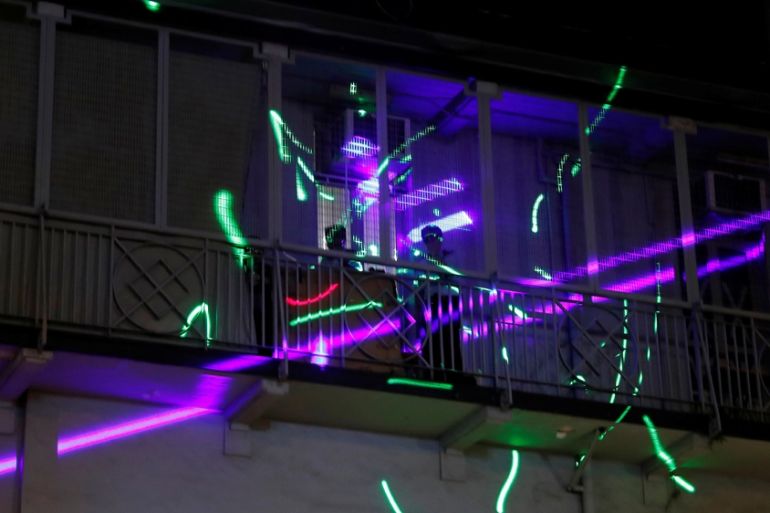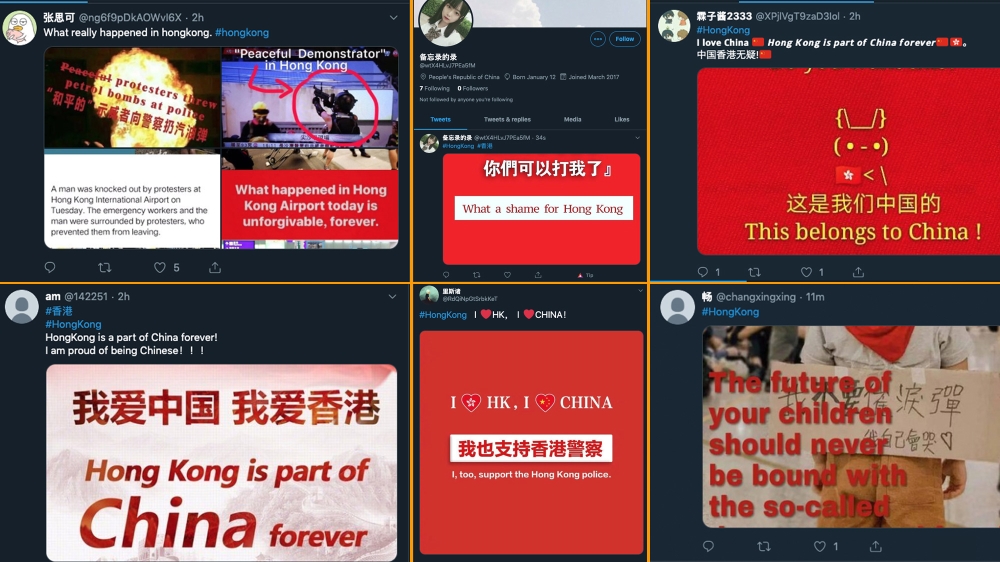Laser beams, Twitter war: The tech side of Hong Kong protests
Technology has become a crucial element in the Hong Kong protests, from facial recognition system to online trolling.

With thousands taking part in Hong Kong’s pro-democracy protests, technology has come to play an important role in the demonstrations.
Authorities have been using technology to their advantage, prompting the protesters to counter that with moves of their own.
Keep reading
list of 4 itemsHong Kong’s new security law comes into force amid human rights concerns
Hong Kong passes tough new national security law
What is Article 23, Hong Kong’s new draconian national security law?
Al Jazeera looks at three examples of how the use of technology, from mobile phones to facial recognition, has become a crucial element in the ongoing protests in Hong Kong.
Countering facial recognition
During the early days of the protests, a video showing dozens of laser pointers aimed at the police went viral.
The protesters were using the laser pointers to not only disorientate the police, but also to circumvent China’s mass surveillance systems, particularly the facial recognition systems.
Beijing’s facial recognition capabilities first came to global attention when China’s detention of more than one million Uighurs in its western Xinjiang province made headlines.
Among other things, China’s use of facial recognition software enabled it to have a tight control over the Uighur population.
https://twitter.com/alessabocchi/status/1156513770254012416?ref_src=twsrc%5Etfw
The police have warned the protesters against using these types of lasers, saying that they could blind the officers.
However, the protesters have not stopped using them despite those calls.
Other more low-tech solutions by the protesters have been covering their faces with masks and using umbrellas to prevent the cameras from filming and identifying them.
Pro-China Twitter accounts
The scuffles have been taking place on the streets of Hong Kong. But the mood has been echoed online, especially on Twitter which has been used extensively by followers of both sides.
Twitter has been the means of getting the word out to the world for many protesters, ensuring their voices are heard by an international audience.
However, as the protests progressed, a steady stream of pro-China accounts slowly emerged, with thousands echoing talking points in support of Beijing.
The accounts, which often have a combination of a randomly generated set of letters as user names, had been dormant for years. But now, with protests in Hong Kong gaining significant traction on Twitter, these accounts have come alive.
Often, they will only have a couple of tweets, hardly any followers and follow only a few accounts. But these accounts are sending out messages in favour of the Chinese government.
According to research done by Al Jazeera for previous articles about state-backed propaganda on Twitter, these are all common traits for Twitter bots and trolls.

The Chinese government has blocked access to Twitter in mainland China, which means that people behind these accounts could not realistically be in China unless they went through several steps to circumvent Beijing’s censorship.
On top of that, circumventing the so-called Great Firewall is illegal for anyone in mainland China, so even people tweeting messages in support of the Chinese government would risk repercussions.
Snooping on travellers’ phones
On Thursday, Bloomberg reported that several people travelling to China from Hong Kong were asked by Chinese border security personnel to unlock their phones and share their activities.
If photographs of the protests were present on the phones, more information was written down by border security.
Another report from the South China Morning Post (SCMP) noted similar practices, with one person quoted as saying a book about dating in modern China was confiscated.
“They first went through my photos and videos, one by one, and asked me to explain what was happening,” an SCMP journalist was quoted as saying.
Because of these stringent measures, many decided to either delete certain apps and information from their phones, or buy new ones before travelling to China.